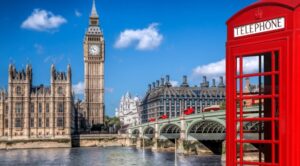Key Moments
- Portugal’s Parliament has decided to advance five proposals to impose stricter limits on gambling advertising and promotions.
- The Socialist Party plans to introduce a non-binding resolution aimed at strengthening gambling oversight and protections.
- APAJO maintains that gambling advertisements are essential for distinguishing licensed operators from illegal ones.
Parliament Sets New Course on Gambling Ads and Promotions
Lawmakers in Portugal are rekindling debates concerning the regulation of gambling advertising and promotions. The legislative body has recently agreed to advance five proposals from the left-wing ecologist party, Livre, focusing on reducing online gambling advertisements, prohibiting sponsorship arrangements, and enforcing compulsory addiction warnings across gambling content.
While these proposals are geared toward enhanced consumer safety, a specific measure to curtail the distribution of scratch cards in healthcare facilities was not given the green light. Parliamentary attention remains on capping advertising practices, with a particular eye on preventing endorsements from influencers and public figures.
Focus on Sports Betting and Enhanced Consumer Warnings
Government ministers will further scrutinize connections between sports organizations and betting companies in Portugal. There is also an initiative to introduce stronger consumer protection notices on online gambling platforms and games of chance as these legislative discussions progress at São Bento Palace.
Socialist Party Pushes for Regulatory Modernization
The Socialist Party (PS) has put forth a non-binding resolution designed to prompt the government to update and reinforce Portugal’s gambling legislation. This action seeks to establish a centralized self-exclusion program, enhance regulatory supervision, and consider channeling gambling revenues toward tourism in less-populated regions.
Current Regulatory Environment
Portugal’s gambling industry is overseen by two sets of laws. Land-based venues, such as casinos, arcades, and bingo halls, are regulated under the 1989 Gambling Law, which confines their operations to certain ‘municipal zones’ appointed by the state. In contrast, the online gambling and sports betting sectors have remained under the governance of Decree-Law 66/2015, managed by the nation’s Gambling Regulation and Inspection Service (SRIJ), since 2015.
| Sector | Regulatory Body | Key Regulation | Tax Rate |
|---|---|---|---|
| Land-based (casinos, arcades, bingo) | State-designated | Gambling Law of 1989 | Restricted to municipal zones |
| Online Gambling / Sports Betting | SRIJ | Decree-Law 66/2015 | Sports betting: 8%-16% (based on wagers) Online casino: 25% flat |
The launch of the 2015 regulatory regime led many global operators to leave the Portuguese online market due to unfavorable tax conditions. However, as tax burdens rose elsewhere in Western Europe, Portugal started to become more attractive to new operators. This shift has seen a steady increase in new SRIJ licensees joining the market.
Industry Responds to Ad Ban Proposals
The Portuguese Online Betting and Gambling Association (APAJO) has argued that gambling advertisements remain crucial, stating they represent “the only way” for the public to distinguish between legitimate and unregulated platforms.
APAJO president Ricardo Domingues stated, “Advertising is the only real advantage that licensed operators have over illegal ones. And it’s the only way for Portuguese consumers to distinguish between the licensed and the unlicensed, the safe and the unsafe.”
Domingues expressed concern that restricting advertising could serve to benefit the illicit market, referencing developments in Italy, and criticized the Livre party’s approach for a lack of understanding, “a clear lack of knowledge of the matter” and acting out of “ideological or personal prejudice and political opportunism.” He cited data showing that about 40% of Portuguese online gamblers are still active on unlicensed sites, with three-quarters apparently unaware they are using illegal services. Domingues further noted that legitimate operators comply with SRIJ restrictions, unlike unauthorized platforms that may allow minors and previously self-excluded individuals to participate and are sometimes linked to match-fixing activities.
Parliamentary Debate: Balancing Harm Reduction and Market Health
MPs from Livre have continued to press the view that gambling is increasingly invisible and can be especially addictive among younger groups who use mobile apps. Their stance is that advertising should not glamorize gambling or entice vulnerable segments. Conversely, APAJO contends that without a visible presence, regulated firms have little means to remain competitive against unauthorized operators.
As the debates progress, Portugal’s Parliament faces important choices regarding the trade-off between consumer protection and maintaining a viable market for licensed gambling providers. Committees are set to decide between more stringent advertising curbs promoted by Livre, or a more moderate reform pathway advocated by the Socialist Party.
- Author


